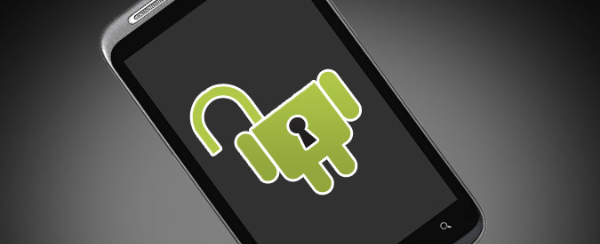'Unlocking Your Bootloader' Is How You 'Root' Your Phone
To 'root' your Android phone (i.e. gain administrative access), you'll need to unlock your bootloader first. Here's some basic information.

A locked or unlocked bootloader is what gives you access to “root.” “Root” is another big word in the Android community. If you “root” a device, it means you have “super user” access or “administrator” access to the operating system that runs on your phone.
Think about Windows for a second. When you either install a new version of Windows or set up your computer for the first time, you set up the first user or the administrator. That user has access to all the bells and whistles that lay behind Windows—hidden files, control panels, you name it. A phone with “root” access allows you access to all the features hidden under the pretty user interface on your phone.
Now think for a second about whether you’ve really ever needed such access as a day-to-day user of your computer or your phone. Although I’ve been “Thedroidguy” on Twitter and on my website for a little more than three years, I’ve only actually needed root access one time across the possibly 40-plus phones I’ve owned. The only time I’ve ever needed root access was on a trip to Berlin for an IFA conference when I needed to change the SIM in my Samsung Captivate on AT&T so that I could use a Vodafone SIM overseas.
MORE: Reduce or Avoid International Roaming Charges
Root access of your Android device gives you the ability to flash ROMs. One of the most popular ROMs was created by a team called the CyanogenMod, and their current rom is CM7, which is built on Android 2.3 Gingerbread. What this means is that if you have a phone that has an unlocked bootloader and root access, you can flash the CM7 ROM to your phone with a couple more steps. This also means that you can get access to most of the features in the latest version of Android that is commercially available, without having to wait for your manufacturer or carrier to give you an official update.
Root Access Is Dangerous
While it’s nice to run the latest version of anything and get upgrades and more, root access is actually dangerous. Going back to the Windows example, Windows is pretty fail-safe; if you screw it up too badly you can restore your computer and reformat your hard drive in addition to re-installing Windows.
With an Android phone, in most cases, it’s not that easy. If you screw something up, you can end up in a bootloop where your phone doesn’t do anything but cycle through a startup screen. Worse, you can end up with a bricked phone, one that won’t turn on no matter what. In both of these cases, though, it’s very important to note that “rooting” your phone voids the warranty.
All in all, rooting, modding, and access to unlocked bootloaders is stuff for someone with technical expertise almost on a par with a hacker. Sure, if you have a second phone and want to fool around a bit, it could be fun and does offer extra features, but with the wide variety of Android devices out there, there is probably a stock feature set that you enjoy.
Those who are into modifying and “hacking” their phones like it when a manufacturer makes it easy to get into the bootloader to get that root access. It was widely rumored that HTC was going to lock the bootloaders on future phones. This wouldn’t mean no more access to root; it would just be much harder to hack the handsets.
The debate in the Android community goes back and forth on the words “open source.” Android is open-source, meaning that aside from Android 3.0/3.1, you can get a Software Developer Kit and get the entire Android code set to build your own apps, themes, software, mods, etc. The Android team even solicits patches from their users to improve upon a subsequent build of the operating system software.
Prior to the original release of Android in 2008 and the announcement about Android in 2007, a consortium of carriers, manufacturers, and other ecosystem partners—including Google—formed the Open Handset Alliance to promote this open-source sharing model. Several Android enthusiasts and developers feel that, with locked bootloaders, the manufacturers are actually going against both open source and the Open Handset Alliance.
HTC recently succumbed to the pressure of the Android developer community, which for developers is a good thing. Having unlocked bootloaders makes it easier for them to develop and create, and no one wants to stifle creativity. On the other hand, neither Chou nor anyone else at HTC mentioned the degree to which their bootloaders would be unlocked and when this unlocking would occur.
Now, as it was revealed at Google I/O and repeated again and again—most recently at D9—Android is activating 400,000 devices per day. Does this bootloader thing really matter to you?
-- Written by The Droid Guy
Sign up to get the BEST of Tom's Guide direct to your inbox.
Get instant access to breaking news, the hottest reviews, great deals and helpful tips.
Tom's Guide upgrades your life by helping you decide what products to buy, finding the best deals and showing you how to get the most out of them and solving problems as they arise. Tom's Guide is here to help you accomplish your goals, find great products without the hassle, get the best deals, discover things others don’t want you to know and save time when problems arise. Visit the About Tom's Guide page for more information and to find out how we test products.

